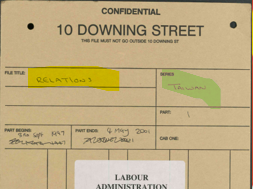Contents

This module examines the historical and contemporary tensions between Taiwan and China, analyzing their implications for regional stability and global geopolitical conflict. It explores the roots of these tensions, including the legacy of Chinese imperialism, Taiwan's colonial history, and the Cold War dynamics that shaped cross-strait relations. Key topics include Taiwan's evolving identity and sovereignty, China's geopolitical ambitions, Taiwan's democratic transformation, and Taiwan's role as a convergence of Chinese and Western civilizations. The module also considers the involvement of Britain, the United States, and other global powers, as well as the significance of the Taiwan Strait as a potential flashpoint for conflict. Students will investigate broader themes such as economic interdependence, military posturing, and the influence of media narratives and deliberate propaganda in shaping public perception. The module invites critical engagement with the question: Is the Taiwan Strait truly a flashpoint for a third world war, or can diplomacy and multilateral engagement chart a path toward peace, democracy, and a multicultural world?
This module provides students with the opportunity to explore a diverse range of primary sources—government documents, memoirs, diplomatic correspondence, news reports, and translated archives—that illuminate the complexities of Taiwan-China relations. By analysing these materials, students will gain a deeper understanding of the historical and contemporary dynamics of cross-strait interactions, regional alliances, and global power politics.
Seminars will address key questions at the heart of the Taiwan-China relationship: How do sovereignty, identity, and democracy shape the interaction between these two political entities? What roles do imperialism, colonial legacies, military strategies, and economic power play in their evolving dynamics? Additionally, discussions will engage with broader theoretical and practical issues, such as the challenges of national identity in a globalized age, the influence of historical narratives, and the role of international actors like the United States in shaping the Taiwan Strait’s geopolitical landscape.
By adopting both micro and macro perspectives, this module examines how everyday politics and social developments in Taiwan and China connect to broader themes in global geopolitics. Through these lenses, students will critically analyse whether the Taiwan Strait represents a potential flashpoint for world war or a case study in conflict resolution, developing the analytical tools to assess complex international issues.
